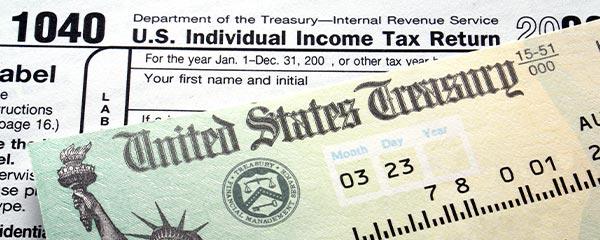WASHINGTON D.C. -- A new Â鶹´«Ã½AV Poll, conducted Oct. 23-26, finds Americans still favoring Barack Obama over John McCain as the candidate better able to handle taxes, 50% to 44%, but to a slightly lesser extent than earlier this month. The positioning of the two candidates on the tax issue has taken on increased importance in the last several weeks as McCain in particular has been focusing heavily on the differences between his approach and Obama's approach to taxes.

The most recent poll continues to reflect a somewhat higher percentage of Americans believing that Obama would raise taxes compared to the percentage who believe this about McCain. The results come at a time when Obama has been emphasizing his pledge to cut taxes for "95% of working families," while McCain claims he wants to make permanent the Bush tax cuts, which include cuts for higher-income Americans.
Thirty-six percent now say McCain will increase taxes, compared to 32% in early September. In the same period, the percentage of Americans who think Obama will increase their taxes has gone down by five points.

Assessing the Bush Tax Cuts
McCain has been emphasizing his proposal to make the Bush tax cuts permanent for all Americans while Obama wants to roll back the Bush tax cuts for those making over $250,000, raising the question of how Americans have reacted to the Bush tax cuts over the years since they were enacted.
A review of past Â鶹´«Ã½AV Polls shows that support for the tax cuts ushered in by President George W. Bush after he took office was initially fairly high, but support for making the tax cuts permanent eroded somewhat during his first term. In a CNN/USA Today/Â鶹´«Ã½AV poll, conducted Jan. 5-7, 2001, before Bush took office and before Congress began debating Bush's proposed $1.3 trillion tax cut, over half (52%) of Americans favored Bush's tax cuts. When it came to making the Bush tax cuts permanent, support dropped from 64% in November 2002 to 52% in December 2004, with opposition rising from 29% to 40% during that period.

Separate Â鶹´«Ã½AV polling conducted in October 2004 showed that 35% of Americans said the Bush tax cuts had mostly hurt the U.S. economy and just 39% said they had mostly helped.
Around the same time, a December 2004 poll found Americans generally favoring significant reforms to the federal income tax system, with a majority (59%) saying it either needed to be completely overhauled or needed major changes.

"Haves" and "Have-Nots"
At the root of the tax issue is the subject of who benefits most from specific tax policies. Both candidates claim that their tax policy will benefit middle-class Americans. These appeals to middle-class sentiment may be resonating with a public that ." In July of this year, almost half of Americans, 49%, said the United States is divided into two groups: the "haves" and the "have-nots." This was up from 45% two years ago, and from 37% in June 2004.
Additionally, in Â鶹´«Ã½AV's annual Economy and Personal Finance poll, a large majority (63%) of Americans (though one of the lowest readings in the last two decades) said that upper-income people pay too little in taxes, while just 4% said the same about middle-income people. A large percentage of Americans (73%) also said corporations pay too little in taxes.

Further, in an Aug. 21-23 USA Today/Â鶹´«Ã½AV poll, more than half of Americans (55%) said they believed that if Obama becomes president, his policies would benefit the middle class (33%) and the poor (22%) the most. However, if McCain were to be elected, 53% believed his policies would benefit the wealthy the most.

Bottom Line
Outside of the context of the current presidential election, Americans have voiced frustration with tax policies that benefit the wealthy. Currently, Americans are more likely to see Obama than McCain as the candidate whose policies would benefit the middle class and the poor the most. This could be a benefit to Obama at a time when about half of the public sees American society as divided into "haves" and "have-nots."
Both candidates have used the Bush tax cuts as a reference point, with McCain vowing to continue them while Obama says he will rescind them for upper-income Americans. Although Â鶹´«Ã½AV has not measured attitudes toward the Bush tax cuts in recent years, by 2004 they had become less favorably received. The fact that Obama has an edge, though it is small, over McCain on taxes at this time may point to an American public that is ready for a change from the fiscal policy of the Bush years.
Survey Methods
Results are based on telephone interviews with 1,010 national adults, aged 18 and older, conducted Oct. 23-26, 2008. For results based on the total sample of national adults, one can say with 95% confidence that the maximum margin of sampling error is ±3 percentage points.
In addition to sampling error, question wording and practical difficulties in conducting surveys can introduce error or bias into the findings of public opinion polls.
Interviews are conducted with respondents on land-line telephones (for respondents with a land-line telephone) and cellular phones (for respondents who are cell-phone only).
In addition to sampling error, question wording and practical difficulties in conducting surveys can introduce error or bias into the findings of public opinion polls.
